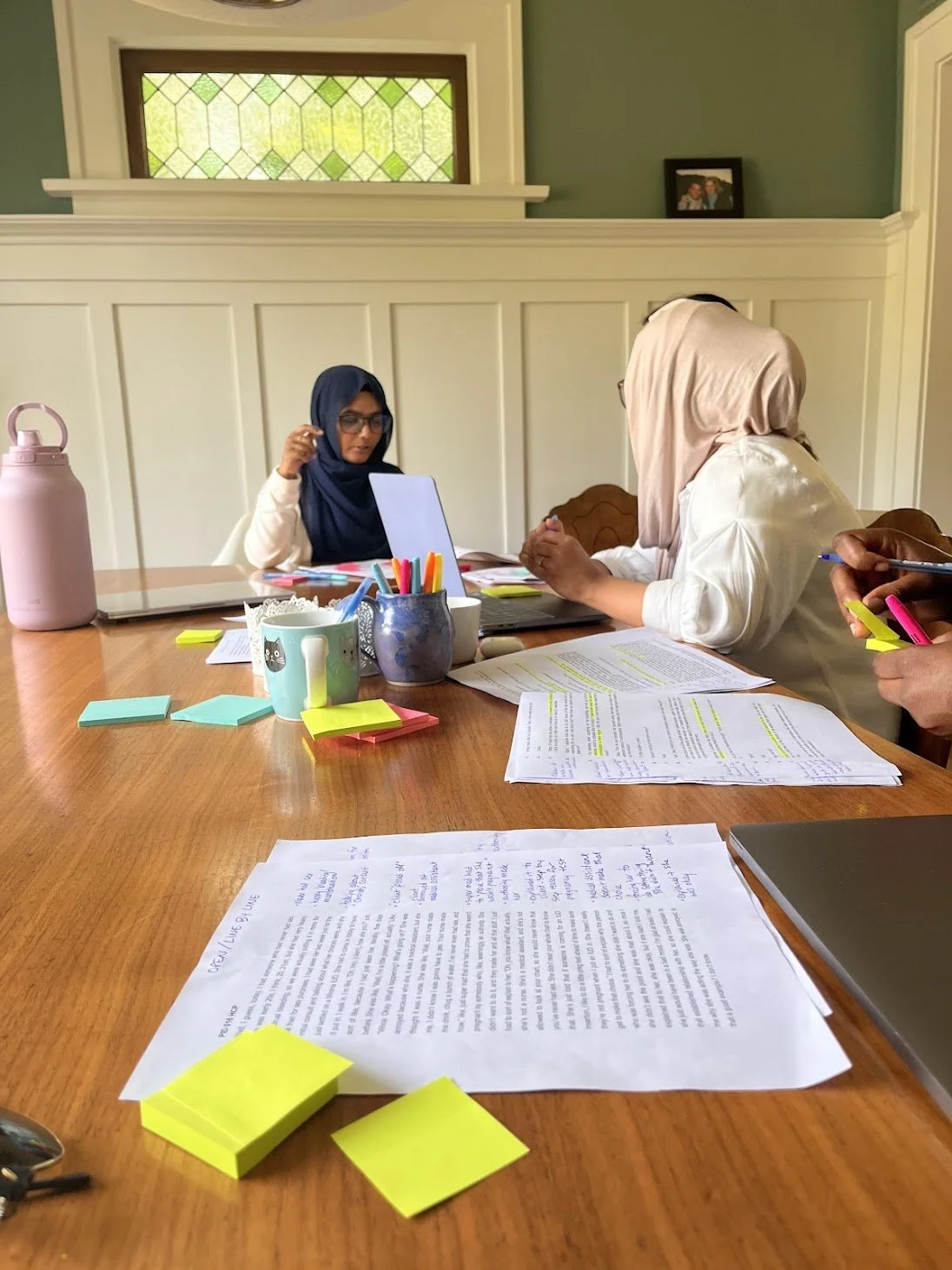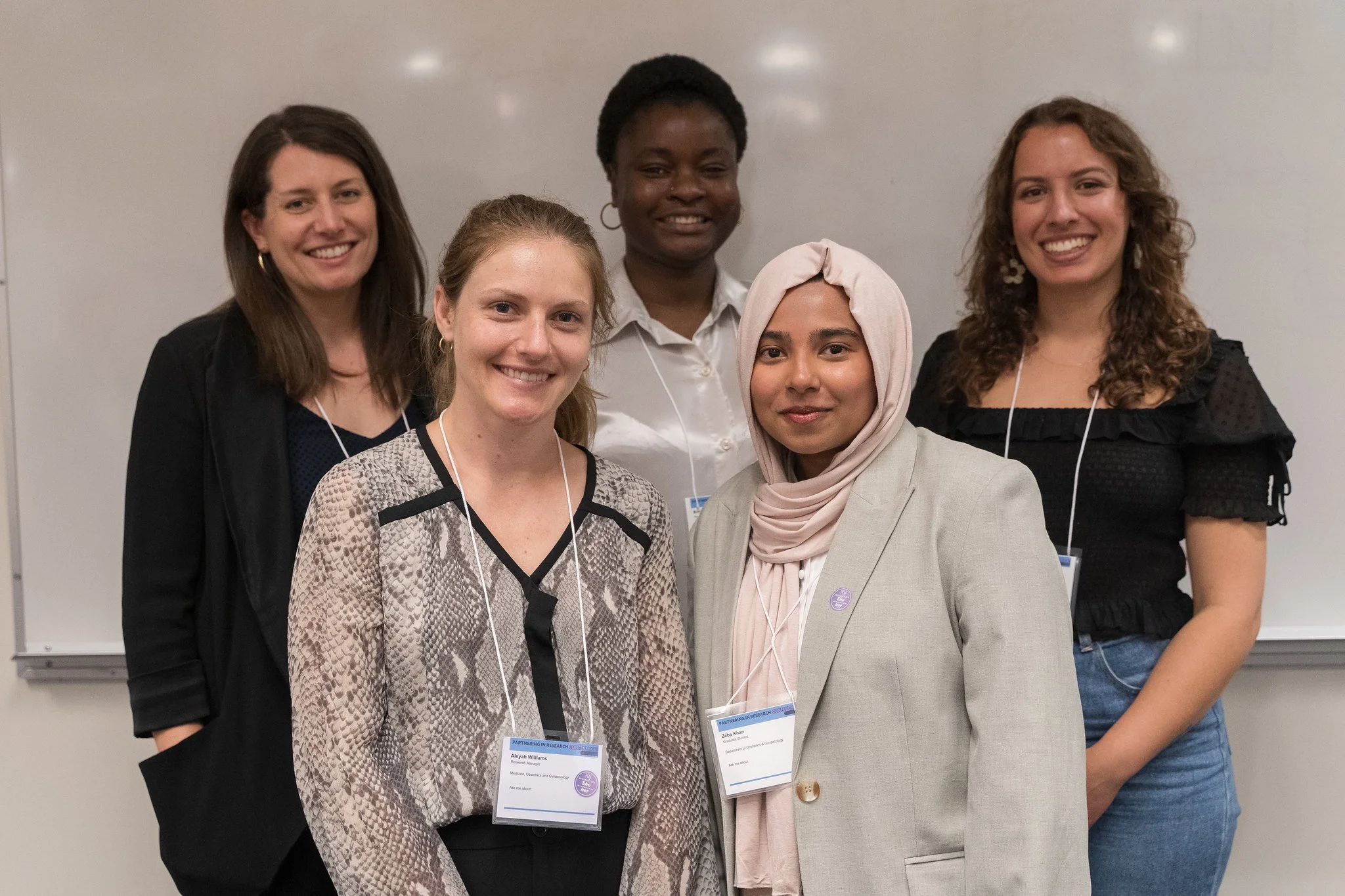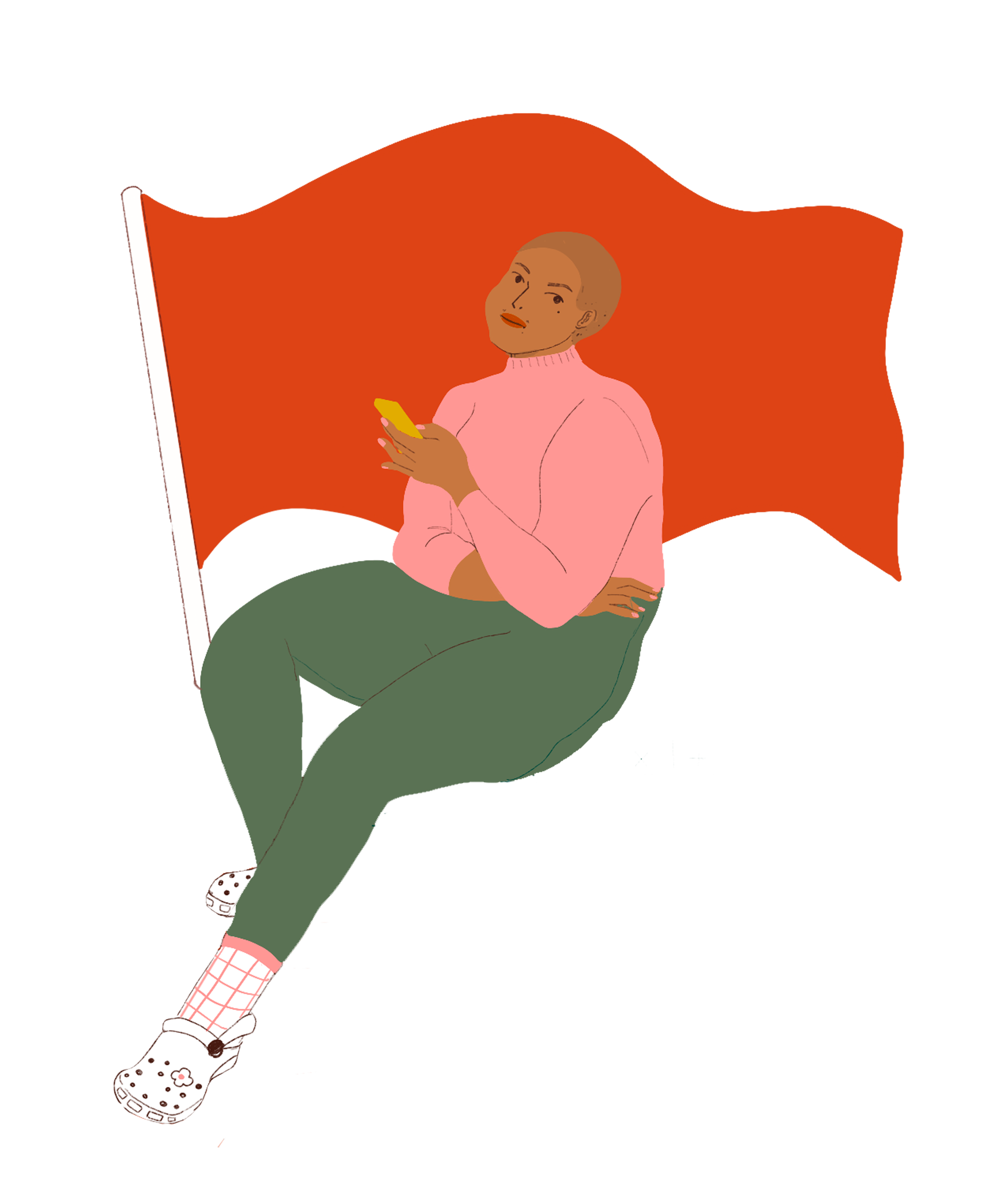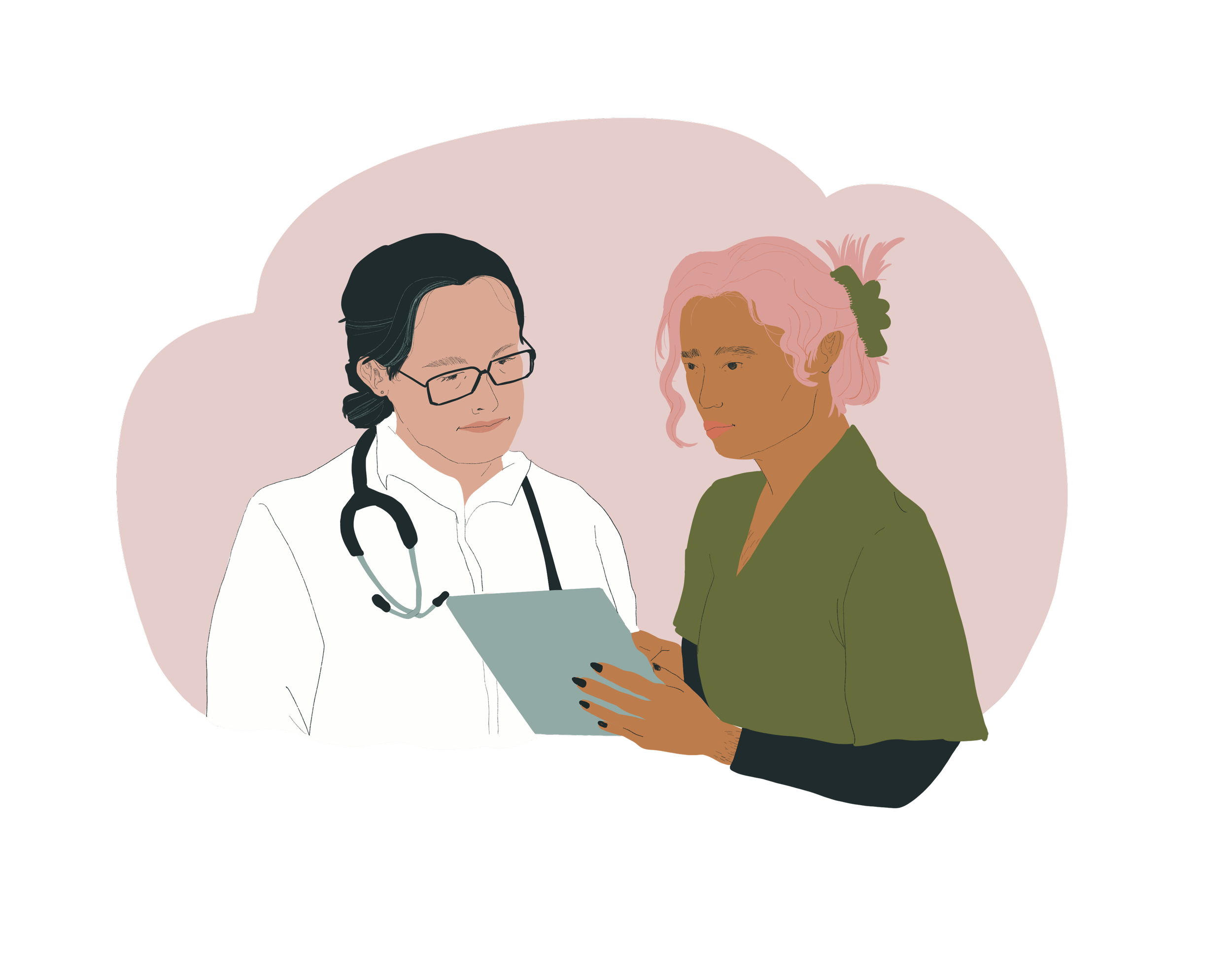Ask Us Project
Our goal is to understand the challenges that youth face in accessing contraception in Canada.
This study has been approved by the UBC Behavioural Research Ethics Board (H21-01901). This study is supported by funding from the Canadian Institutes of Health Research.
Message from the team
Through the Ask Us Project we seek to learn the factors that influence youth contraceptive access in Canada. We want to understand what matters most when youth make decisions about which methods to use, from the perspectives of both youth and their health care service providers.
We will produce evidence for healthcare regulators, decision-makers, providers, and youth, to support equitable, accessible, high-quality contraception care. Ultimately, we aim to empower youth to take control of their fertility on their own terms.
This project is led by a national, multidisciplinary team of youth, researchers, clinicians, decision makers and advocates. We follow a youth-led, equity-focused approach where youth participants are valued partners and collaborators in our research. Our approach is supported intersectional feminist methodology, and trauma and violence-informed research.
About the project
-
Youth in Canada face ongoing challenges to access timely, effective and affordable contraception. Unintended pregnancy can be life-altering, particularly for youth. Youth may experience limits to education and job training, resources for food and shelter, and a poorer start for their children. In spite of universal coverage of contraceptives in some regions, universal access remains a dream. Youth who wish to avoid pregnancy do not always have the ability to use consistent or effective contraception.
-
The Ask Us Project is a two-part study taking place over four years (2021-2025). Phase 1 is an interview study with youth and service providers. The interviews are conducted by youth peer researchers. Through these interviews we are:
Investigating the experiences, beliefs, attitudes, knowledge, and contraceptive access needs of youth in Canada (aged 15 to 25) from the perspectives of youth and service providers, and
Identifying the attributes of contraceptive options that matter most when making decisions about methods to use, from the perspectives of youth and service providers.
After we complete the interviews, we will begin phase 2, a design project to create and test “youth stories.” These stories will communicate the results of our research to youth, health care professionals, and decision makers in Canadian contraception policy and practice.
This project is funded by the Canadian Institutes of Health Research.
-
By doing this research and understanding contraception access for youth in Canada, we may witness a range of benefits:
Accelerated use of evidence through the sharing of “youth stories”
Evidence-based contraceptive policy and practice change to improve youth access
Improved equity and access to contraception care for youth
Reductions in unintended pregnancy and need for abortion among youth
Empowering youth with the skills and capacity to co-lead impactful health research
British Columbia Sub-Study
In British Columbia, our Ask Us Project team has partnered with UBC Health and the Ministry of Health to investigate the experiences, beliefs, attitudes, knowledge, and contraceptive access needs of youth (aged 15 to 25) from the perspectives of youth and pharmacists, in the context of two new policies.
-
We are investigating:
What are youth and pharmacists’ experiences seeking and prescribing contraception following BC’s implementation of the contraception subsidy and pharmacist contraception prescribing?
What factors support or impede access to contraception for youth in BC, specifically through pharmacy access points, from the perspectives of both youth and pharmacists?
What methods of prescription contraception do youth and pharmacists choose to request or prescribe, and why?
-
On April 1st, 2023, BC implemented a first-in-Canada universal no-cost subsidy for prescription contraception. This subsidy covers prescription options like oral contraceptive pills, copper and hormonal intrauterine devices, hormonal injections, subdermal contraceptive implants, vaginal rings, as well as over-the-counter emergency oral contraceptives.
This policy eliminates the burden of cost that is often associated with many prescription contraception methods and increases confidentiality as pharmacists cannot charge fees for dispensing, assessment, or any other action associated with filling the prescription for contraceptives covered under the new contraception subsidy, thus minimizing the paper trail that often existed when pharmacists billed for contraceptives before the subsidy.
On June 1st, 2023, BC pharmacists’ scope of practice expanded to include independent prescribing for hormonal contraception. This second policy expands pharmacists’ scope of practice to include prescribing all forms of hormonal contraception.
Community pharmacists are the most accessible healthcare professionals in BC due to their numbers, broad geographic distribution, and pharmacy operating hours. Thus, people who may not have or have limited access to primary care may access the healthcare system through this expanded route of entry and receive the contraception information and services they desire.
Guiding Principles
Our research is participatory
Our research is rooted in locally, culturally appropriate protocols
We focus on building relationships, safety, and trust
Our youth-led data collection and analysis
Our team of youth research assistants led data collection through conducting one-on-one interviews with youth participants. Prior to the interviews, youth research assistants participated in iterative group-based and one-to-one mentorship in the study methods and critical frameworks with the study lead for 6 months using a ‘capacity bridging’ approach. This acknowledges that all team members bring expertise to the collaborative research and the goal is identify and ‘bridge’ these diverse skills and knowledge. Through this work, youth brought their knowledge of trauma-informed care in community settings to design the trauma-informed research practices we applied in the Ask Us Project.
We used a youth-led data analysis approach and aimed to make the process tactile, participatory, and engaging. To ensure rich discussion and reflections with our youth team who conducted the interviews, we hosted a two-day in-person coding workshop with youth research assistants, the study lead, students, and research staff. We used open coding on a small sample of paper-based transcripts and colourful concept mapping on poster paper to capture our analysis. Following this workshop, we refined and developed a final codebook using our open coding, and coded the remaining transcripts with youth and research staff.






What we are learning
-
Coming soon…
Youth Stories is creative knowledge translation product of compounded interviews and demographics from Ask Us participants that are showcased in bite-sized ‘youth stories’. This visual representation of the Ask Us Study aims to communicate results to youth, healthcare professionals, and decision makers in Canadian contraception policy and practice.
-
Can youth-engaged research facilitate equitable access to contraception in Canada? The qualitative study protocol for the Ask Us project (link)
Young researchers’ reflections on workshops with youth to develop research recruitment materials (link)
Newcomer youth’s access to contraception care in Canada: A scoping review of qualitative evidence (link)
How can community-based organizations be involved in the contraception care pathway for newcomer youth? Results of knowledge translation workshops (link)
Ask Us Snapshot, 2024
BC Snapshot, 2025
Youth Co-Design
The Ask Us project is co-designed with youth researchers and community partners. At each step of the project, from study design to data analysis, youth have been key collaborators. One core example of youth engagement is the development of our youth-oriented outreach and recruitment strategy through youth co-design workshops. In collaboration with the Public Design Studio and youth artist Jesseca Buizon, we conducted six co-design workshops involving 12 youth, aged 15 to 30. Together, we developed brand and recruitment materials, including a study name, logo, slogan, and recruitment posters that represented the needs and experiences of youth.
Learn more about our co-design process in our publication:
Khan, Z., Seiyad, H., Jacob, K., Arhinson, A., Williams, A., & Munro, S. (2025). Young researchers' reflections on workshops with youth to develop research recruitment materials. Research involvement and engagement, 11(1), 9. https://doi.org/10.1186/s40900-025-00681-8
Jesseca Buizon
We worked with youth artist Jesseca Buizon to create youth-oriented imagery for the Ask Us Project.
For more insight into Jesseca’s process, visit her website, jayymadethis.com/ask-us-project.











Our Partners















